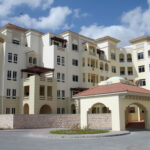Where to Learn Arabic in Dubai
Pointing a potential student to a variety of schools and institutes in Dubai where he or she can learn Arabic is not difficult. “Where” is not the difficulty, so much as “which”. Are all these venues for learning Arabic in Dubai equally good?
That seems unlikely; common sense will tell us that, like the schools we send our children to, some are better than others. Do they all charge the same fees? Again, it’s pretty certain that they don’t, for the same reason – the ones that have a track record with satisfied students singing the praises of the Academy or Institute can command a premium.
Why bother to learn at all?
You’ll hear this a lot from other expatriates, even those whose first language is Arabic. That in itself seems strange, but when you consider that Emirati nationals only make up 20% of the population of the United Arab Emirates, and that it may be an even lower percentage in the Emirate of Dubai itself, you quickly realize that Arabic, particularly the variety of Arabic used in the Arabian Gulf is not as common in daily use as English – which is the default “common tongue” for all the nationalities and different language speakers in Dubai.
Have a look at this link to a discussion on TripAdvisor.com, asking if there is a need to speak Arabic in Dubai. Rather discouragingly, most of the contributors advise the person who posted to query not to bother, because everybody speaks English and there’s little point wasting time learning a language when you simply don’t need to.
Well I won’t waste your time telling you all of the many compelling reasons for learning another language either: you can read them for yourself here. I would, however, like to mention two: it’s a courtesy towards the people and the culture of the country which is hosting you and giving you a very nice standard of living. It’s also a good mental challenge for you. We’re never too old to start learning new things, although in the case of languages, there is some quite compelling research that younger is better.
How difficult is Arabic?
It does require you to learn a new alphabet in order to read it. That alphabet has 28 characters, so you can knock that off in just a few hours of determined work with a pencil, a pad and a set of flash cards to test yourself. After that, you’ll be getting reinforcement in reading and saying aloud what you are reading from all the Arabic signage around you. It’s easier learning and practising your reading here in Dubai than it would be in the UK or the USA.
Difficult to speak? Well, there are a few sounds common to Arabic that will cause the English speaker a few difficulties and need practice, but the same is true of French or Italian.
Difficult grammar? Grammar’s always difficult for the second language learner. The grammar of English is just as tough for non-native speakers as the grammar of Arabic is for us. Serious study and plenty of daily practice overcomes most difficulties.
Mountains of vocabulary to learn? Of course. But pretty much any language anywhere in the world can be unlocked with a vocabulary of between 1500 and 2500 words, provided they are the right words. And what, pray, are the “right words”? Again, linguists have done lots of research on this topic. Read about it here.
In fact, skip to the bottom of the page and have a look at the list of the top 2000 English vocabulary items used in speaking. There should be a similar list of vocabulary items to express the same ideas in Arabic. We all need to say “yes, no, hot, cold, happy, sad, there is, there are, not” and so on. It’s just that different languages have different ways of expressing these ideas with words.
Hint – a good way to assess an Arabic language school, or any language school for that matter, is to ask to see their Beginning Learner’s Vocabulary List. If they don’t have one, walk away. If they have one, but if it’s full of useless beginner words, walk away. A beginner’s vocabulary list in any language should show you how to read, say and write key enabling words like the, of, and, to, a, in, is and so on – the Arabic equivalents of the top 2000 English words, from word 1 up to word 2000.
Can I teach myself Arabic?
If you are highly motivated, of course, but a really good teacher and a class of fellow learners who are at roughly the same level as yourself turns the task of learning into a happy and sociable experience.
There are plenty of books available; there are many good, interesting web based resources to help you learn Arabic in Dubai. Here are a few, but you can find many more: Madina Arabic, (nice, colorful website; looks suitable for beginners), Arabic Learning Resources (good vocabulary and grammar here, but probably better for intermediate level students), The University of Northern Iowa’s collection of Arabic learning sites (different sections for different levels) and finally Word Reference.com’s online Arabic dictionary: once you have got reading Arabic under your belt, WordReference is a really useful site not only for vocabulary but also examples of how the words are compounded with others and used in contexts and sentences; it’s probably more suited to intermediate learners.
There are many others; you will see very quickly when you check them out which ones are best for your needs and ability level.
Schools, Academies and Institutes
As I said earlier, there are plenty. You’ll find them online, but that’s not terribly helpful when it comes to deciding which. Ask colleagues who may have taken Arabic language courses.
The better schools may let you take a couple of free classes before committing to a full course. Don’t pay a whole semester’s fees before you have had some personal experience of the school’s teaching faculty, methodology and learning resources. Ask to pay on a monthly basis, so that if it turns out that this school isn’t for you, you haven’t lost a whole 5 or 6 months’ worth of fees.
At times, Dubai Municipality and the Ministry of Education offer free Arabic courses to bolster language and cultural awareness of life in the UAE. Being free, you may find that classes are quite big and there probably will be a very wide range of abilities all lumped together. The teachers may be of the old school “I talk, you listen” kind, but if it costs nothing, then it’s worth a try. If you find it doesn’t work for you, you’ve still got the fee-paying schools and academies to fall back on.








